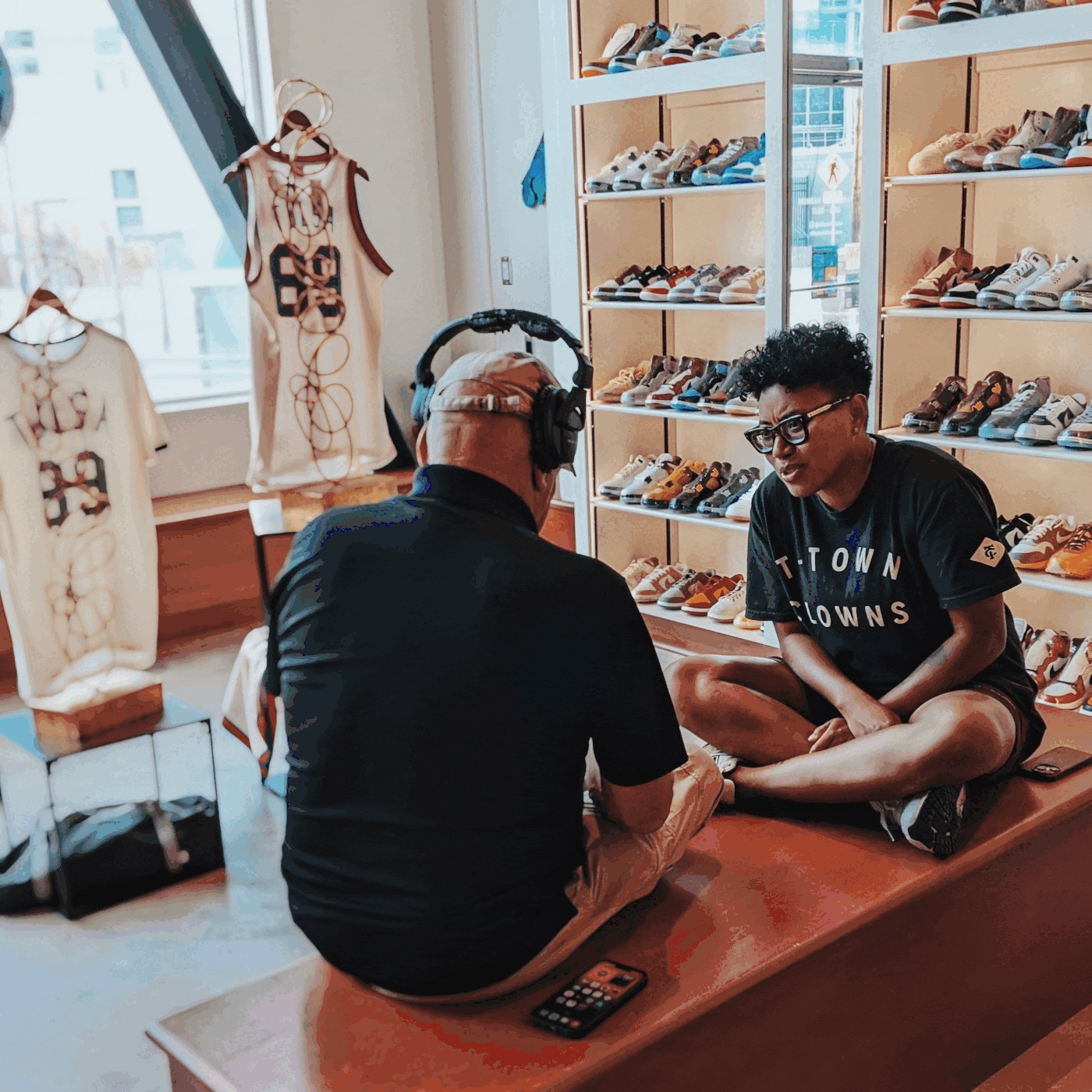Venita Cooper shares her journey that led her to Tulsa, her sneaker shop, and her award-winning tech startup.
Join correspondent Tom Wilmer for an insightful visit with Venita “Coop” Cooper at her trendy Silhouette Sneakers & Art in the heart of Tulsa’s Black Wall Street, Greenwood District.
Coop’s Silhouette Sneakers & Art is a curated retail experience that brings limited and authentic sneakers and streetwear to Tulsa.
Coop also shares fascinating insights about her brilliant startup, Arbit. Succinctly, it’ a pricing algorithm that empowers both buyers and sellers in the sneaker resell market. Coop says. “It’s not a marketplace. It’s an unbiased pricing B-to-C tool that informs buy and sell decisions in all sneaker marketplaces.”
“Our boutique features an art gallery showcasing a rotating selection of street-inspired art. We also deliver programming that links sneaker culture enthusiasts and cultivates a new generation of sneakerheads”.
– Venita Cooper, Owner/Founder of Silhouette Sneakers & Art
Silhouette Sneakers & Art located in Tulsa’s Historic Greenwood District showcases everything from custom and high-end shoes to vintage apparel and modern streetwear.
Shop for a unique pair of Yeezys, Nike Air Force Ones or Jordans while admiring the art gallery of rotating, street-inspired art. Other brands featured at Silhouette are Adidas, Converse, Fear of God, John Geiger, New Balance, Off-White, Saucony, Supreme and Vans. Meet other sneaker culture enthusiasts or add an exclusive set to your collection when visiting Silhouette Sneakers & Art.
Coop’s Sneaker shop is located in the exact spot where a shoe store reposed before it was arsoned in the 1921 Tulsa race massacre.
A central theme in Coop’s mission is to revitalize the Greenwood District and this is why she located her shop in the heart of the neighborhood—on the same footprint as the shoe store that was destroyed during the 1921 massacre.
Excerpt from a May 24, 2021 New York Times article about the terror attack on the Greenwood neighborhood:
Brick and wood-frame homes dotted the landscape, along with blocks lined with grocery stores, hotels, nightclubs, billiard halls, theaters, doctor’s offices and churches.
Greenwood was so promising, so vibrant that it became home to what was known as America’s Black Wall Street. But what took years to build was erased in less than 24 hours by racial violence — sending the dead into mass graves and forever altering family trees.
Hundreds of Greenwood residents were brutally killed, their homes and businesses wiped out. They were casualties of a furious and heavily armed white mob of looters and arsonists. One factor that drove the violence: resentment toward the Black prosperity found in block after block of Greenwood.
The financial toll of the massacre is evident in the $1.8 million in property loss claims — $27 million in today’s dollars — detailed in a 2001 state commission report.
For two decades, the report has been one of the most comprehensive accounts to reveal the horrific details of the massacre — among the worst racial terror attacks in the nation’s history — as well as the government’s culpability.


Photo credit: Thomas Wilmer

Photo credit: Thomas Wilmer






